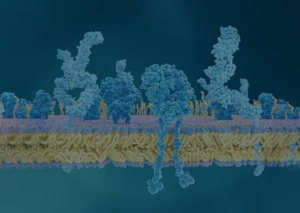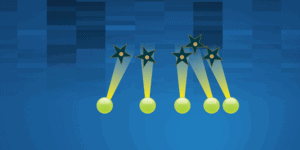
NanoString Blog

nCounter Neuroscience Spatial Transcriptomics
Alzheimer’s Disease Pathology: Fear, Confusion, and the Search for a Cure
Alzheimer’s disease pathology: a short sentence loaded with fear, confusion, and incredulity. The word “Alzheimer’s” first appeared in a German psychiatry handbook called “General Psychiatry” on July 15, 1910. This…

Immunology Infectious Disease Oncology
T-Cell Receptor Diversity…What Are You Missing?
The T cell receptor (TCR) is one of the distinguishing molecules of the adaptive immune system. TCRs allow mammalian immune systems to recognize and respond to foreign entities (pathogens, vaccines,…

Data Analysis GeoMx DSP
The Inspiration Behind GeoScript™ Hub for Spatial Data Analysis
Meet two of NanoString’s finest, Debra Toburen, Senior Director of Software Product Management, and Prajan Divakar, Senior Product Enablement Scientist, who are focused on enabling customers to get the most…

Digital Spatial Profiling Spatial Biology
The Importance of Segmentation in Spatial Biology
In a highly interconnected world, clear communication and information across the globe are critical. The same is true at the tissue and cellular levels. Cells communicate through chemical signals such…

Grants nCounter
NanoString People of Color and Allies (nPOCA) ERG Grant Support Program
2020 will be remembered as the year that a novel viral pandemic and the protests galvanized by the death of George Floyd disrupted modern society. These events, while seemingly unrelated,…

GeoMx DSP Oncology
Breast Cancer: Best practices for using GeoMx® Digital Spatial Profiler
It’s October and breast cancer awareness month. Breast cancer kills more women than any other type of cancer. It isn’t just limited to women either – a man’s lifetime breast…

Immunology Infectious Disease nCounter
How NanoString nCounter® helps vaccine research: Part 2, A tale of three viruses
In the first part of this two-part blog series, I discussed NanoString nCounter® technology. nCounter allows biologists to quantify gene expression using a series of molecular probes. One application of…

Immunology Infectious Disease nCounter
How nCounter helps vaccine research: Part 1, Improving Vaccines
I really dislike needles. In fact, I’m downright needle-phobic. When I was notified of my eligibility to receive my COVID-19 vaccine, it was without a doubt the most excited I…

Neuroscience
Meet the New Brainiacs in the Fight Against Neurological Diseases
The Liddelow Lab is part of the Neuroscience Institute at NYU Langone. The lab’s research focus is astrocytes and their involvement in human neurological diseases. The team discovered that different…

Spatial Biology
The Story Behind NanoString’s PSBJ 40 Under 40 Nominee
The 40 Under 40 program, now in its 23rd year, includes professionals from life sciences, health care, aerospace, tech, food services, and nonprofits, among other sectors. The honorees were selected…

Data Analysis nCounter
Gene Expression and Data Analysis Tools: A Cali Core Facility’s Story
ROSALIND is a cloud-based gene expression and genomic data analysis tool designed for life scientists. In October 2020, NanoString® Technologies and ROSALIND announced a partnership to grant global access to…

Oncology
What is the Next Frontier in Cellular Therapy?
In early June 2021, NanoString and the Parker Institute for Cancer Immunotherapy (PICI) announced a multi-center collaboration to characterize 800 CAR-T samples in a unique and concerted effort to understand…